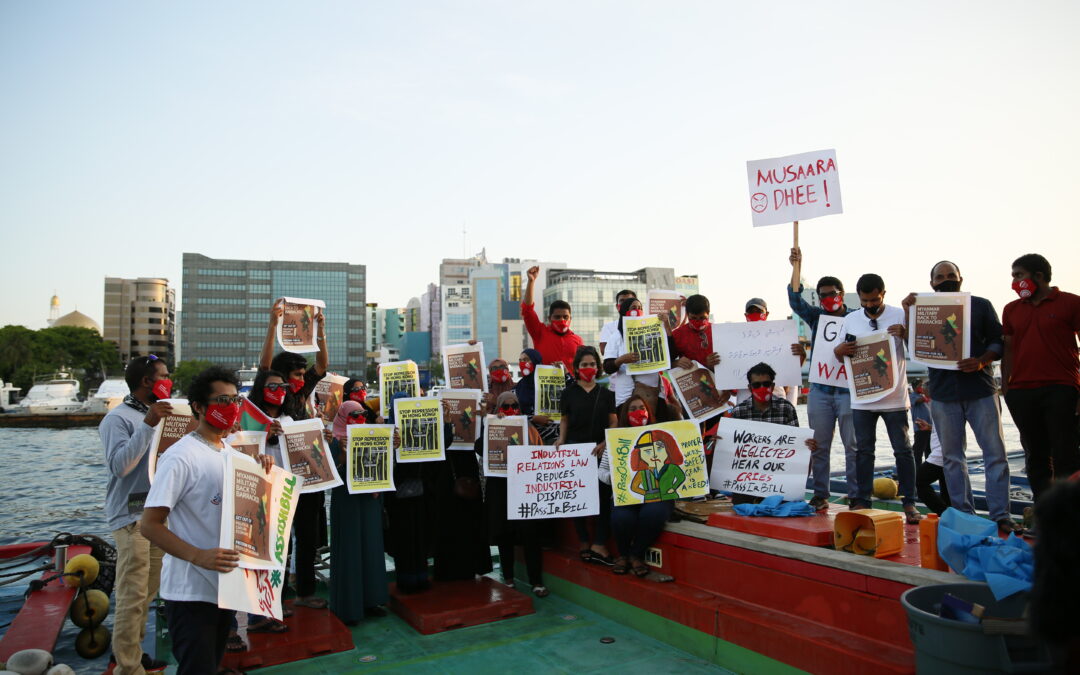
Milestone for Maldivian Workers: Industrial Relations and Occupational Safety and Health Bills Enacted
After a decade of relentless advocacy by the trade unions in the Maldives, President Mohamed Muizzu ratified on January 2 the Industrial Relations and Occupational Safety and Health bills passed by parliament with a super majority in mid December. Enactment of the law marks a monumental stride toward safeguarding worker rights and fostering industrial harmony in the Asian archipelago.
The Industrial Relations Act solidifies a structured framework for consultation and social dialogue among government entities, workers and employers. This framework stands as a beacon for the protection of worker rights, paving the way for economic and social progress, unions say. At its core lies the establishment of the National Tripartite Labor Advisory Council, ensuring the protection of collective bargaining rights and robust mechanisms for resolving industrial disputes through mediation. The Act institutionalizes key worker rights, like the rights to freedom of association and assembly, and empowers both local and migrant workers to collectively negotiate for their interests and welfare.
Simultaneously, the Occupational Safety and Health bill underscores stringent obligations for employers, emphasizing workplace safety standards, compensation frameworks and penalties for non-compliance. This legislation reflects a firm commitment to international standards and fundamental human rights, ensuring a safer and healthier work environment for all.
Congratulating the trade union movement of the Maldives on this crucial victory, Mauroof Zakir, president of Maldives Trade Union Congress (MTUC), said the passage of both bills “represents a historic victory for the working class in the Maldives. It is indeed a great achievement to empower workers and contribute to strengthening the democratic principles of the nation.”
On a similar note, Fathimath Zimna, MTUC general secretary, said, “Enactment of Industrial Relations Act and Occupational Safety and Health Act marks a significant milestone and victory that was achieved through a relentless campaign by Maldives unions. It is an important stride forward in achieving the decent work agenda in the Maldives. The journey of unions and workers will stand as a symbol of resilience and strength to working people of the world. It resembles what working people can achieve through collective voice. It is important for workers to organize into unions and raise their voices collectively to protect workers’ interests to fully entertain the rights given by the two acts.” She added that, “It is just the beginning for many more victories for the working people and their families. We would like to extend our appreciation and gratitude to all our partner organizations, including Solidarity Center and the global union federations for their support and solidarity.”
